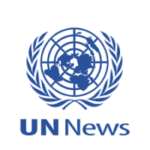US Sanctions against International Court Staff a ‘Direct Attack’ on Judicial Independence
UNITED NATIONS, 29 Jun 2020
UN News - TRANSCEND Media Service
25 Jun 2020 – The decision by the United States to authorize sanctions targeting staff at the International Criminal Court (ICC) is “a direct attack to the institution’s judicial independence”, UN human rights experts said today.
Washington announced this month that it would launch an economic and legal offensive against ICC officials investigating alleged war crimes committed by all sides in the conflict in Afghanistan, including US troops.
“The implementation of such policies by the US has the sole aim of exerting pressure on an institution whose role is to seek justice against crimes of genocide, war crimes, crimes against humanity, and the crime of aggression”,
said Diego García-Sayán, UN Special Rapporteur on the independence of judges and lawyers, speaking on behalf of the 34 experts.
“It’s a further step in pressuring the ICC and coercing its officials in the context of independent and objective investigations and impartial judicial proceedings.”
The @IntlCrimCourt’s judicial independence is threatened by #US Government sanction and visa measures against individual staff. It also risks jeopardising access to justice for victims of war atrocities – UN experts. Learn more: https://t.co/JUMrio0YKX pic.twitter.com/MeAWi9hw9X
— UN Special Procedures (@UN_SPExperts) June 25, 2020
Afghanistan probe ‘important’
The ICC, which is based in The Hague, in the Netherlands, prosecutes the most serious crimes of concern to the international community, including cases related to conflict in the Central African Republic, Darfur and the Democratic Republic of the Congo.
It was established in July 1998 under a treaty known as the Rome Statute, which more than 120 countries have signed. The US is not a party.
The ICC’s Appeals Chambers authorized the Afghanistan probe in March, overturning an earlier decision.
Speaking at the time, Prosecutor Fatou Bensouda called it
“an important day for the cause of justice in the situation of Afghanistan, for the Court, and for international criminal justice more broadly.”
Assets blocked, visas revoked
In response to the court’s decision, US President Donald Trump issued an Executive Order on 11 June, blocking the financial assets of certain ICC staff and imposing visa restrictions on them and their immediate family members.
Speaking at a press conference that day, US Attorney-General William Barr said the measures “are an important first step in holding the ICC accountable for exceeding its mandate and violating the sovereignty of the United States.”
The president of the body which oversees the ICC, O-Gon Kwon, has denounced the measures, stating “they undermine our common endeavour to fight impunity and to ensure accountability for mass atrocities.”
‘Broad spectrum’ of rights violated
The UN experts said sanctions targeting international judges and international civil servants violate their privileges and immunities, as well as “a broad spectrum” of rights.
Specifically, the Executive Order “would result in the violation of the prohibition of punishment for acts that did not constitute criminal offences at the moment of their commission, the right to a fair trial, the right to freedom of movement and the right to privacy and family life,” they added.
They also recalled that the US has warned it would “exact consequences” against the ICC for any “illegitimate” investigations into Israeli practices in the occupied Palestinian territory.
The experts, who are neither UN staff nor paid by the Organization, have been in contact with the US authorities on these issues.
Tags: Afghanistan, Anglo America, Crimes against Humanity, International Criminal Court ICC, Justice, Military Supremacy, Sanctions, US Military, USA, United Nations, War crimes
DISCLAIMER: The statements, views and opinions expressed in pieces republished here are solely those of the authors and do not necessarily represent those of TMS. In accordance with title 17 U.S.C. section 107, this material is distributed without profit to those who have expressed a prior interest in receiving the included information for research and educational purposes. TMS has no affiliation whatsoever with the originator of this article nor is TMS endorsed or sponsored by the originator. “GO TO ORIGINAL” links are provided as a convenience to our readers and allow for verification of authenticity. However, as originating pages are often updated by their originating host sites, the versions posted may not match the versions our readers view when clicking the “GO TO ORIGINAL” links. This site contains copyrighted material the use of which has not always been specifically authorized by the copyright owner. We are making such material available in our efforts to advance understanding of environmental, political, human rights, economic, democracy, scientific, and social justice issues, etc. We believe this constitutes a ‘fair use’ of any such copyrighted material as provided for in section 107 of the US Copyright Law. In accordance with Title 17 U.S.C. Section 107, the material on this site is distributed without profit to those who have expressed a prior interest in receiving the included information for research and educational purposes. For more information go to: http://www.law.cornell.edu/uscode/17/107.shtml. If you wish to use copyrighted material from this site for purposes of your own that go beyond ‘fair use’, you must obtain permission from the copyright owner.
